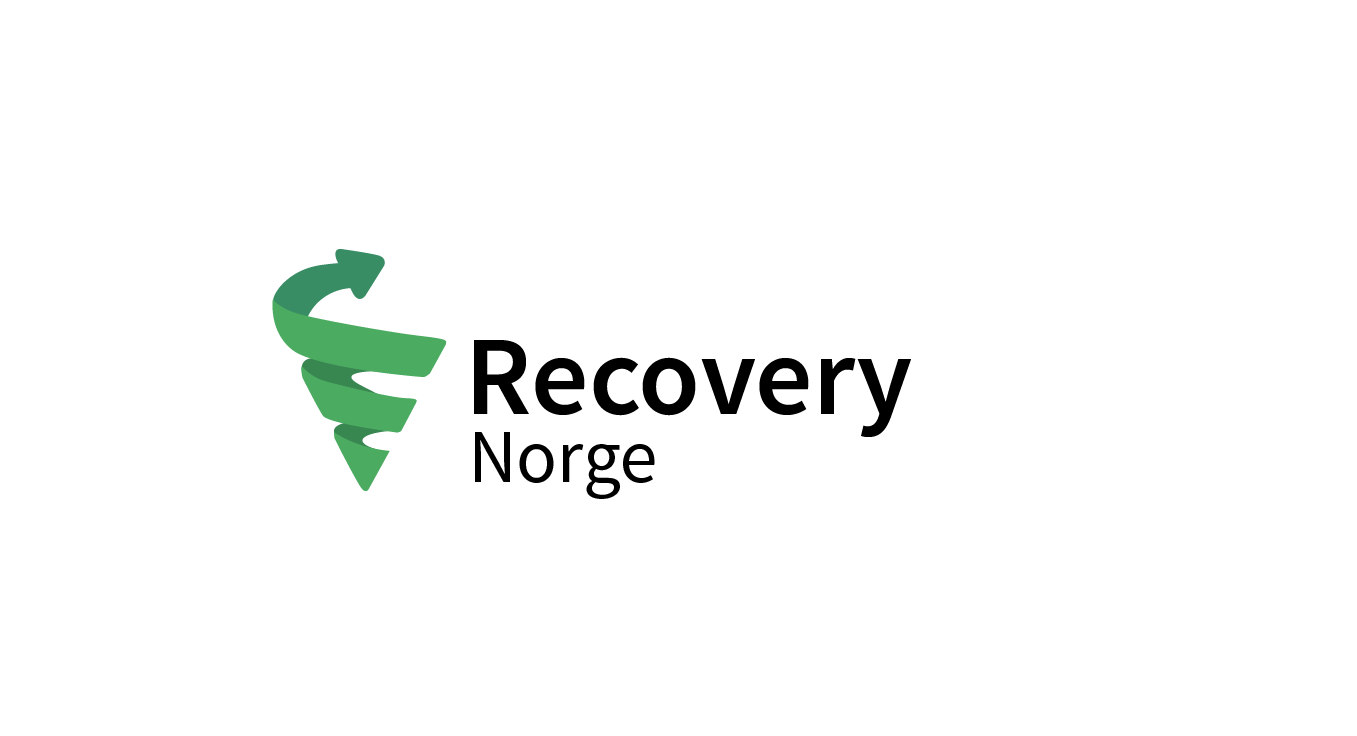Author: Thomas Overvik
I had just met the girl I would eventually marry. I was studying literature at the University of Bergen, Norway, and enjoyed it tremendously. I had good friends and took part in running a student pub and a film club. I was in excellent health and relatively fit. And then there was a turning point, the night when I was admitted to hospital with a high temperature and a terribly sore throat. Things escalated quite rapidly. Shortly after I began to feel better I developed pneumonia on top of the mononucleosis. This was followed by a severe infection in one shoulder. And when I finally thought I was going home, having spent weeks in hospital, I actually developed a thrombosis in the same shoulder.
Something just isn’t right
It was only to be expected that I remained in poor health for quite a while afterwards. After all, my body had been through quite lot. I recovered slowly during the summer, and when Autumn came, I returned to Uni and resumed my studies, fully expecting to slip right back into my old life. This, however, was not to happen.
I had considered myself well again, but quickly sensed that neither my body nor my head were functioning as they should. Everything felt like hard work. My response was to push myself hard, both with regard to my studies and my physical fitness; fully expecting things to improve in time. However, the opposite happened, and that Autumn my health gradually deteriorated.
My response was to push myself hard, both with regard to my studies and my physical fitness; fully expecting things to improve in time
My powers of concentration failed me completely, and I struggled to keep up with my studies. I was constantly tired and developed an enormous need to sleep. I felt ill all the time, as though coming down with the flu. Completely overwhelmed by sensory impressions whether I was out shopping or in the lecture hall. I gradually came to realise that any type of exertion made my symptoms worse, sometimes immediately and other times with a delay of maybe a couple of days.
Breaking boundaries came at a cost
In 2004, I was diagnosed with ME by professor Harald Nyland at Haukeland hospital. I felt a massive sense of relief, having finally met a doctor who understood my condition. This did not, however, prevent me from becoming gradually more ill over the next two years. I was confined to the indoors a lot more, as any physical exertion made my condition worse. Also, I had to be careful to preserve energy, as any transgression of my limits led to immediate punishment.
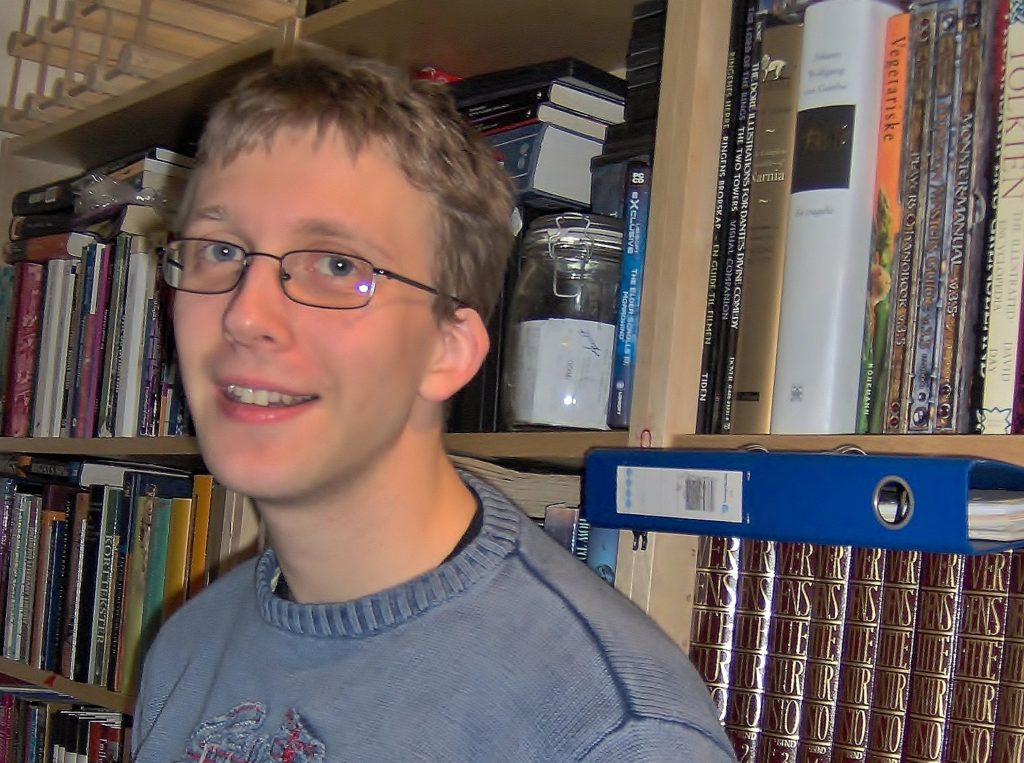
Most of the time I was quite good at sticking to my regime, but there were times when I caved in to temptation to do things I knew deep down were not such a good idea. Such as that spring day in 2005, when the sun was shining, and I followed an orienteering map all the way up a local mountain. This resulted in my first major crash. I ended up bedridden for days, completely spent and with agony in both legs, and took a long-term downturn for the worse.
Seeing a psychologist
I had given up on my studies, and was living off welfare payments from Social Security. I was really exasperated and angry when my case handler demanded that I had to see a psychologist in order to fulfil their requirement that I had to receive treatment, as it seemed so obvious to me that my illness was purely physical. And neither the psychologist nor the psychiatrist found any signs of a mental illness, and they concluded by referring to the ME diagnosis delivered by Haukeland hospital.
Neither the psychologist nor the psychiatrist found any signs of mental illness.
I never lost courage during this period, but adjusted my life to what I saw as my new reality; and planned for the future accordingly. I found more sedentary activities that I enjoyed: I wrote, did some buying and selling on the internet, as well as editing videos and develop some database solutions, all at my own pace. I thought that as long as I did not exceed my boundaries, I could keep this up and live quite a good life in this manner, even though there were things that I could no longer do, and that I missed. People suffering from ME, ending up completely bedridden, were not on my mind. There was no way I was going down that road.
Into bed
In the autumn of 2006 it happened, after all. Having had a fairly good summer I started to feel more feeble, and the pains in my arms and legs grew stronger and more frequent. I could not figure out why my boundaries seemed to have been curtailed.
I was visiting my childhood home in Trøndelag. It was freezing cold, both outside and in the old house, and I needed to get some firewood. The only logs in the shed were massive; old and dry and full of knots. The axe wouldn’t bite, but I wasn’t feeling too bad that day, and there was a wedge and a sledgehammer leaning against the wall. So I did what I had to do to keep warm.
At first I thought I’d gotten away with it, but then two days later I could hardly stand up. It didn’t make me panic – I’d had similar episodes before – and like on previous occasions I lay down to rest for a couple of days, in order to recover sufficiently to get on a plane back to Bergen. But on the day of departure I didn’t make it further than into the shower, where I collapsed completely, only just able to get back onto the sofa.
I expected to get better again, but the opposite happened. I got worse and worse, and at a frightening rate of speed.
Two days later I learnt that my wife was pregnant.
The following month was spent flat out on the sofa, only getting up for going to the toilet. I watched some TV. Tried to rest as best I could. Expecting to get getter, but the opposite happened. My condition deteriorated, frighteningly fast.
Nothing is trivial anymore
The pains became unbearable, like my whole body was in an uproar. I started to have strong reactions to things that had previously been trifling. After a couple of days I had to completely give up watching television. Reading was out of the question. My arms were unable to hold a book, or even a comic, and my eyes were objecting strongly. A doctor came to visit, and having to relate to, and speak to, another person, had suddenly become intolerably hard.
In the end, I could no longer make it out to the toilet, and had to pee in a bottle or use a nappy. My stomach objected to everything I tried to eat, and in the end I was left with the same soup made from chicken or salmon, potato and carrot at every meal. A bed arrived from social services and was placed in our living room, where I remained, wearing earplugs and hearing protection, and gradually – as I became more and more sensitive to light, the windows were covered with carpets and bin liners, until I was left in total darkness and absolute silence.
Everything made me instantly worse: touch, sounds, light. Consequently I was never washed, shaved or had my hair cut
For the next 14-15 months I never left the bed. I was practically incapable of moving. I could move my fingers enough to press an alarm button, but not much more than that. I was spoon-fed, but generally unable to chew. When things got extra bad, I was fed intravenous nutrition through a straw. Everything made me instantly worse: touch, sounds, light. Naturally, I was never washed, or shaved or had my hair cut, and all human contact was kept to a minimum. My only social interaction consisted of the few sentences my wife and my mother whispered when I was being fed or had to ‘go’.
A hope – but it doesn’t make sense!
Gradually I began to believe that I would never get well again, that the only way out would be to die. Not that I really wanted to, but I was daydreaming about falling into a coma, to be gone for a year or two, and then wake up and perhaps be well. My general symptoms might fluctuate over time, but I never experienced anything that might even resemble improvement. Rather the opposite.
Throughout this period my wife and my mother practically spent their lives on the various ME fora and other webpages to seek out advice on how best to care for me. Not least they wondered whether there was anything that might cure me. This was how they came across the stories of all those who tried the Lightning Process around this time. Every time a member of some ME group had ‘been to England and become well again’, they made sure to report this in muted whispers during the next mealtime. We counted, and as the reported cases of recovery passed 10, then 20, and then 30, my curiosity grew into a semblance of a hope. But of course, there was no way I could make it over to the UK in my state of health.
My confusion and disappointment was total, and I refused to believe this could be what made people well again.
In her despair, my wife spoke to the mother of two girls who had recovered by means of the LP, and the steps of the process were explained to her, which she in turn communicated to me, still whispering over spoons of soup. I had to say ‘stop’, she explained. And choose the life I loved. And then people went this way and that way, and said this and that, while pretending to be a ‘coach’ … Whaaat?! My confusion and disappointment was total, none of this made any sense at all, and I refused to believe this could be what made people recover. Surely, there had to be more to it than this?
Nothing left to lose, anyway
My wife had enough of the whole situation in the autumn of 2007. After a year of tireless efforts, she had reached the same conclusion that I had: that I would most likely never recover. Also, she was now a mother, with a newborn to look after, and looking after both an infant and a husband bedridden with ME was just beyond anyone. In retrospect it is absolutely understandable and necessary that she took our daughter and returned to her own part of the country to start a new life there. My mother took over the responsibility of caring for me, but could not cope for more than a month. The only solution left was the one I had feared more than anything since I became bedridden, and I was transferred to a nursing home.
The only solution left was the one I had feared above all
Despite my misgivings, I survived this, too. But laid out in darkness, completely immobile, being fed by strangers, the recognition that I had absolutely no life left became total. So when an LP coach arrived in Trondheim to give classes, and agreed to attempt to treat me at the same time, I said yes. I feared that I would not be able to take it. A three-day training course in my condition, being practically unable to communicate with anyone, could simply not end well. I believed I might die. Or perhaps finally fall into a coma. But there was nothing left to lose anyway.
Who would want to take part in a film where things did not end well?
As if that wasn’t enough, I also agreed to being filmed during the course. This was based on a purely emotional, almost superstitious reasoning: Who would want to make a film with an unhappy ending? With a camera present, I felt like the odds were better that this might actually become the story of my recovery.
Wanted to stop the training course
The whispered conversations with the British LP coach turned everything upside down – but not instantly. On the second day of the course I was ready to give up. I felt miserable, convinced I had totally overdone things, and wanted to quit. I was really disappointed with the simplicity of the core of the process, which I realised was the same that my wife had conveyed to me.
But I was persuaded to carry on. I so much wanted to become well again, and I still had nothing to lose. During the course of that afternoon, I felt that the pieces were falling into place. The penny dropped, and my understanding of my illness, in fact my whole immediate world view, changed radically. I was helped to change my patterns of thinking, and the way I saw myself, my illness and my health. I learnt to question things that I had seen as absolute truths, and I was taught mental methods that helped me stay on track also in the future.
My understanding of my illness, in fact my whole immediate world view, changed radically
A lot to process
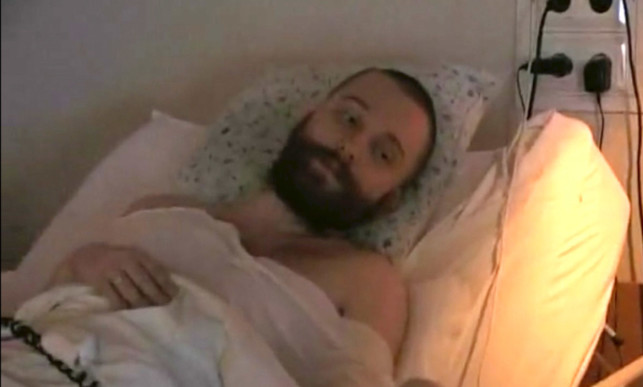
From that day onward, things only got better. The light was switched back on and voices were used even while the course was ongoing. In those same days, I again listened to music, and ate ordinary food and had a glass of red wine. You could pretty much say that I was already well again. My muscles were practically gone, so it took weeks of training to be able to get out of bed. I had to learn how to walk again. My head wasn’t totally with me all the time, and it was quite nerve-racking to take such a leap of faith. I felt like Indiana Jones in the Last Crusade. Put simply, I had some work to do, physically as well as mentally, and there were days when I had my doubts and might conclude that it was all just a lot of nonsense. But, as I would pick up my phone to text my LP coach, who had long returned to Wales, I knew what her response would be even before I could press ‘send’. And that was sufficient. I deleted my texts without sending them, regained my confidence, and climbed back down on the right side of doubts.
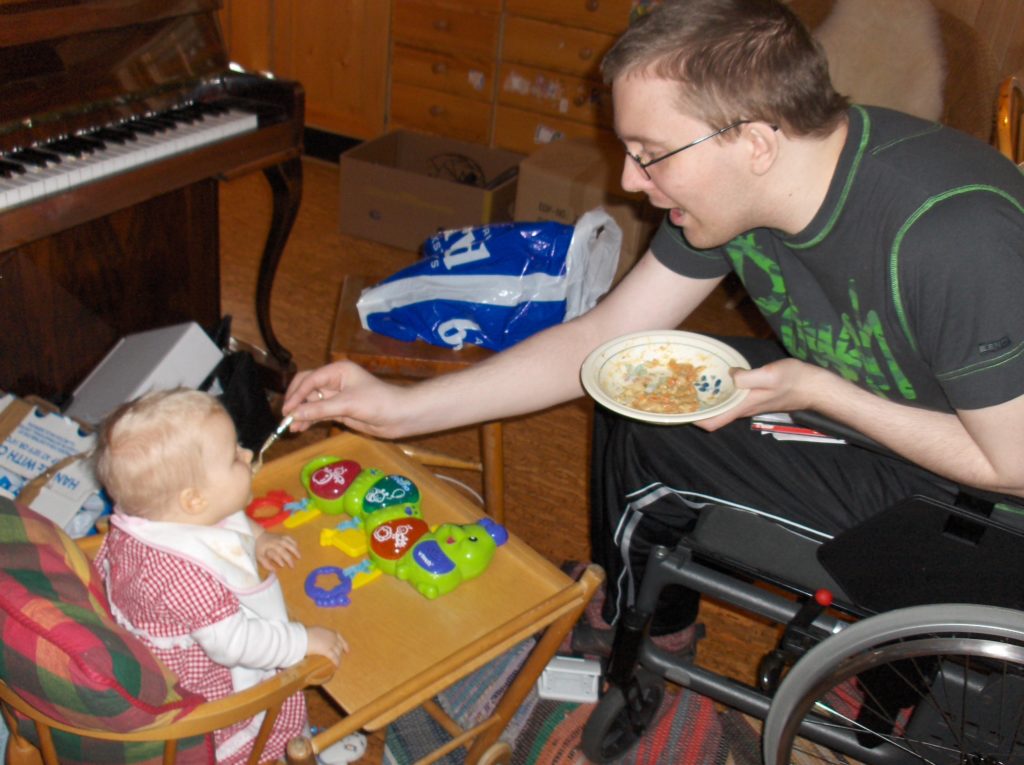
Rejoining my wife
I moved to join my wife and daughter in spring 2008 and have since lived a normal, healthy life. I’ve worked as a journalist and editor of a local newspaper, but currently I work at the local library. I have fully recovered physically, and I’ve enjoyed long hikes in the mountains, from the demanding Besseggen in Norway to Teide in Tenerife, and week-long cycle trips down Øland and the southern coast of Norway.
I doubt I would have had the courage to go through with the course that helped me get well again, if I had known in advance about all the scepticism and condemnation that is so prevalent today.
Twice I’ve been persuaded to do newspaper interviews, first time in January 2015 in VG and more recently at Easter 2017 (Dagbladet). If any of the many comments I’ve received are to be believed, I must be a confused and publicity-seeking liar just looking for his 15 minutes of fame. I’m also told that I am in the pocket of the LP industry and that I probably get a commission to speak out publicly. The real reason I have agreed to speak out in public the way I have, is my firm belief that I am doing the right thing. I am always careful to underscore that this is my experience and my story, and I make no claims about being the sole custodian of the truth about what ME is, or how everybody else should deal with their illness. All the same, I know that I myself would probably not have been able to summon up the courage to go through with the training that made me recover my health, had I known in advance about all the scepticism and condemnation that is so rife today. In which case, I might still be lying there, in the darkness of the nursing home. Furthermore, I am convinced that there are others out there that are in the same situation that I was, and who might benefit from handling the issues the same way that I did. They need to know there is hope and that it is possible to find a way out.
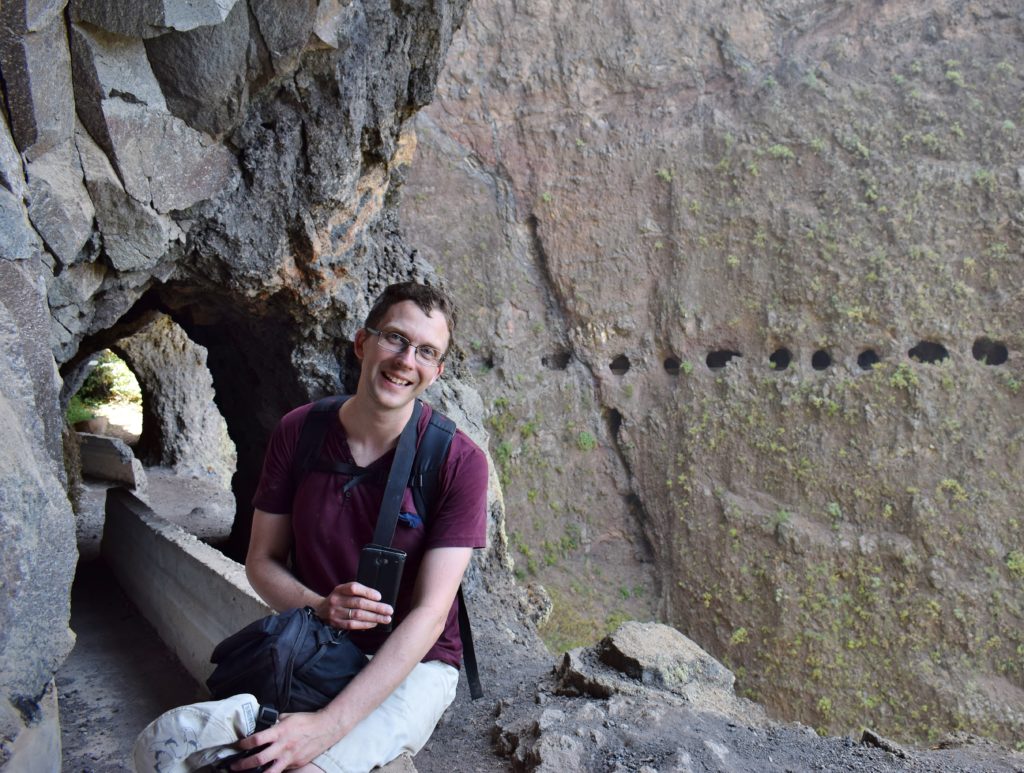
I am convinced that there are others out there that are in the same situation that I was, and who might benefit from handling the issues the same way that I did. They need to know there is hope and that it is possible to find a way out.
